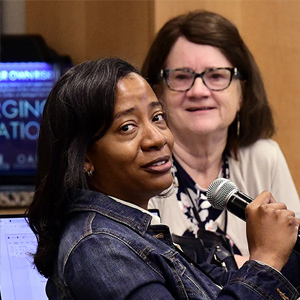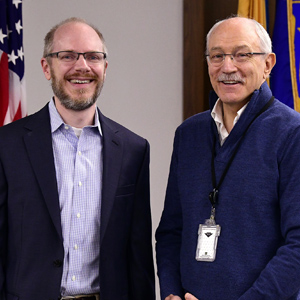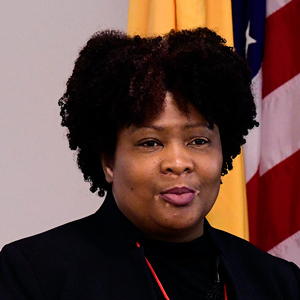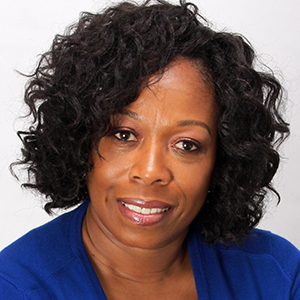Parents of children with special needs are incredibly resilient, a quality that has been tested during the novel coronavirus pandemic. Disruption to daily routines has been difficult, these parents say, and the secret to success is developing strong support networks. On Dec. 2, the NIEHS Diversity Speaker Series featured three NIEHS employees who know what it takes to nurture kids with disabilities.
Support Services Supervisor Rhonda Carroll, Web Manager Cheryl Thompson, and NIEHS Acting Deputy Director Gwen Collman, Ph.D., presented “Families Raising Children with Special Needs: Joys and Challenges Amidst COVID-19.”
The NIEHS Office of Science Education and Diversity (OSED), led by Ericka Reid, Ph.D., organized the event (see sidebar).
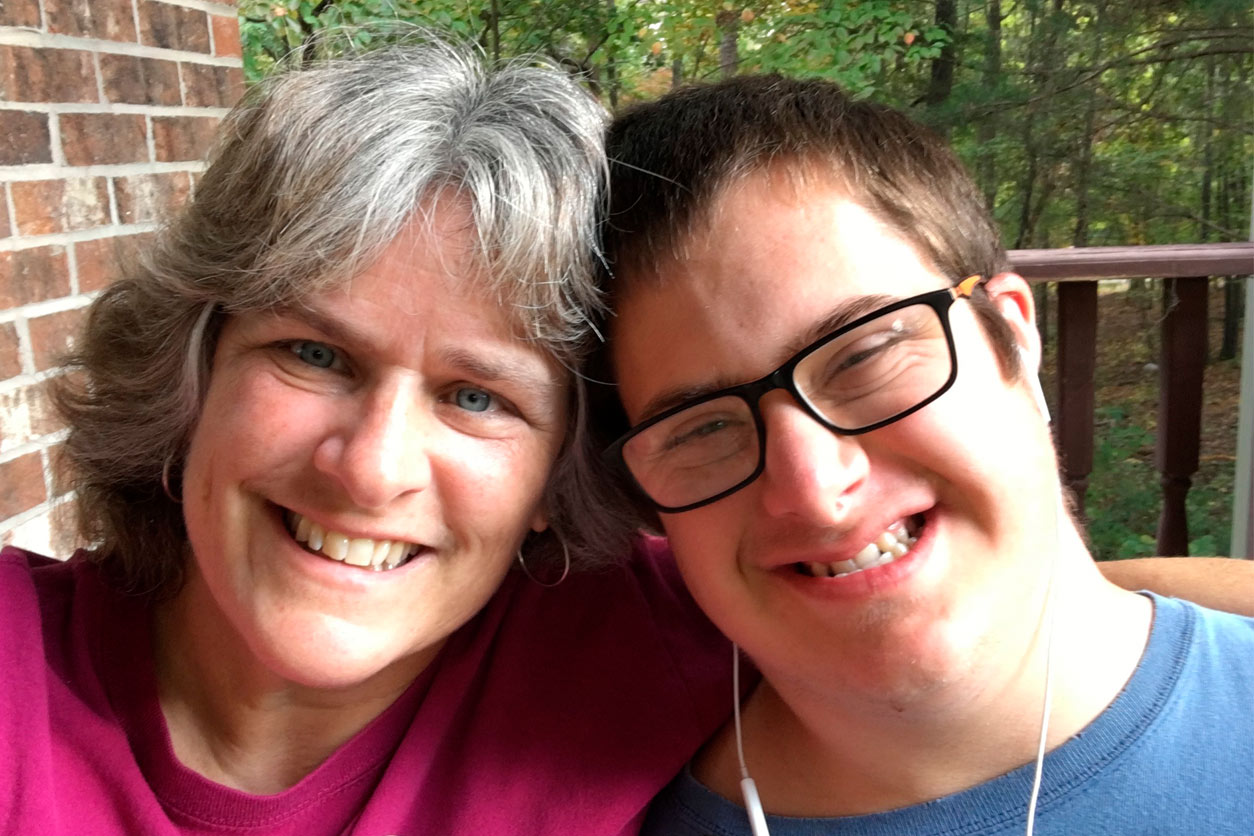 Carroll, left, said that Joseph showed the rest of the family how to slow down and appreciate the small things in life. (Photo courtesy of Rhonda Carroll)
Carroll, left, said that Joseph showed the rest of the family how to slow down and appreciate the small things in life. (Photo courtesy of Rhonda Carroll)A blessing to the family
Carroll’s son, Joseph, is 17 years old and has mild to moderate cognitive delays associated with Down Syndrome. Before COVID-19, he rode the school bus to and from public school. His self-contained classroom combined children of different ages. With 10 or fewer students, they had one-on-one instruction.
Joseph has adjusted well to the virtual classroom, although he still relishes his free time for bass fishing, playing pool and cards, driving go-carts, and listening to music. He is a typical teenager who can be argumentative and has a stubborn streak, but Carroll says he is a great kid with a kind heart. Joseph wants to get a job when he grows up and hang out with friends.
Carroll credits organizations like the North Carolina Down Syndrome Alliance for providing support. 'Joseph has been a true blessing to our family,' Carroll said. 'I encourage people to treat individuals with disabilities as people first.'
Two kids with special needs
Thompson has two children with special needs, 11-year-old Maddy and 6-year-old Jasper. Maddy is intellectually gifted and has both attention deficit hyperactivity disorder (ADHD) and dysgraphia, a learning disability that affects her writing. Jasper has autism.
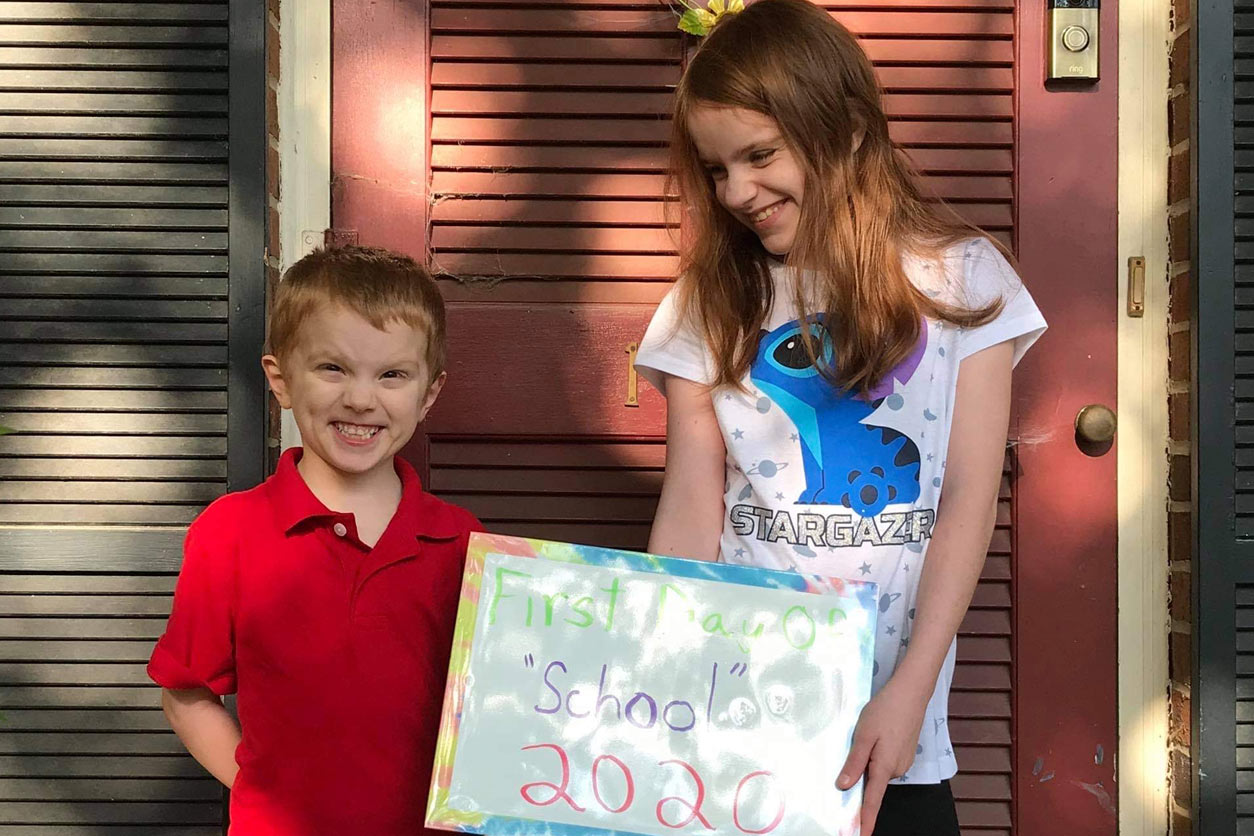 Jasper, left, and Maddy were all smiles on the first day of school 2020. (Photo courtesy of Cheryl Thompson)
Jasper, left, and Maddy were all smiles on the first day of school 2020. (Photo courtesy of Cheryl Thompson)Kids with ADHD find it hard to sit still, according to Thompson, and may experience delays in developing planning skills like those necessary to complete homework. Before the pandemic, Maddy had trouble following her teacher’s directives. Now, all her assignments are in one place online, making them easier to finish. Her writing impediment does not matter when everything is typed on a keyboard. In short, she has excelled.
It is the opposite for her little brother, Jasper. Someone must sit with him during every class or he will run and hide. Thompson and her husband take turns, using a mix of vacation time and lunchbreaks to cover his school day. Thompson’s mother moved in to help, but it is still a struggle.
'It isn’t the ideal situation for my family, because he needs to be with peers to learn how to interact,' Thompson said. 'But autism support groups on Facebook and resources like Wrightslaw have been a big help.'
Staying busy
Collman has four adult children, including 27-year-old triplets. One of the triplets, David, has cerebral palsy, moderate cognitive delays, and is hearing and visually impaired. He communicates with American Sign Language.
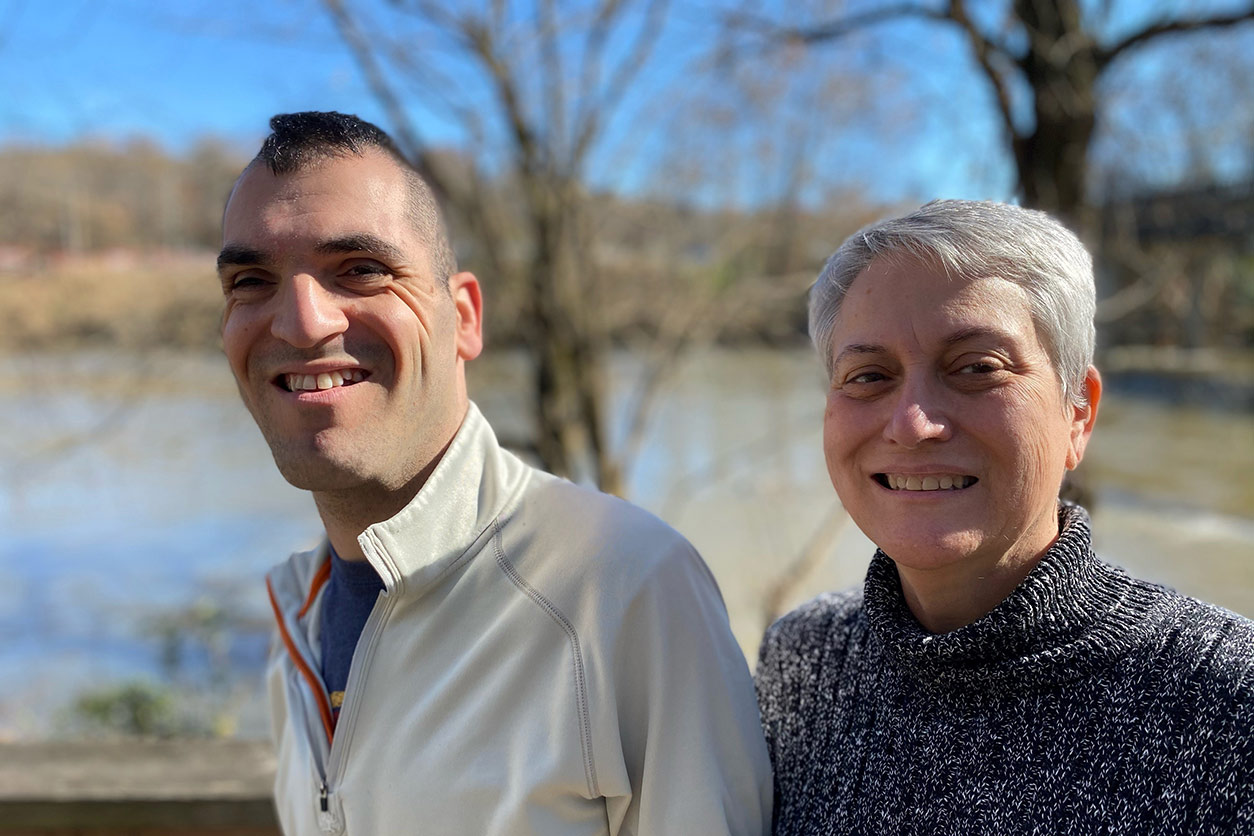 David, left, and Collman are like a lot of people during the pandemic — spending most of the day on Zoom. (Photo courtesy of Gwen Collman)
David, left, and Collman are like a lot of people during the pandemic — spending most of the day on Zoom. (Photo courtesy of Gwen Collman)David graduated high school at age 22 and worked two jobs while living at home. Like many parents of adult children with special needs, Collman and her husband worried about who would take care of him when they no longer could. They found a group home where David would be well cared for, but no rooms were available. After five years of waiting, an opening arose and David moved in January 2020.
Then the pandemic struck, and David moved back home. He does chores and is involved in Reality Ministries, a faith-based organization that brings together people with abilities and disabilities.
He also joined PPEople Brigade, volunteers who make face shields for healthcare workers. David sent some of his face shields and personal thank you notes to friends and family who work in hospitals. 'Making face shields helped him understand he could give back and help people,' Collman said.






